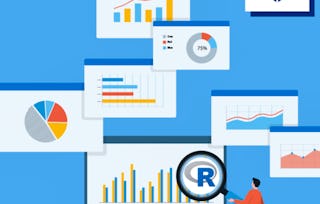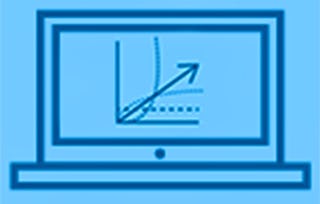Updated in May 2025.
This course now features Coursera Coach! A smarter way to learn with interactive, real-time conversations that help you test your knowledge, challenge assumptions, and deepen your understanding as you progress through the course. In this course, you'll embark on a journey to master data visualization using R, one of the most popular programming languages among data scientists. Starting with the basics, you'll learn how to set up R and RStudio, ensuring your environment is ready for data analysis. You'll then acquire data from the US National Weather Service, focusing on real-world data to make the learning process relevant and engaging. The initial module walks you through inspecting the data to understand its structure and nuances. Next, you will dive into writing R code to read and manipulate data. You'll explore various data types and values within R, building a solid foundation in handling complex datasets. The course then moves on to practical applications, teaching you how to plot data and create scatter plots. You'll learn to apply linear regression models to identify trends within the data, enhancing your analytical skills. Through hands-on lessons, you'll generate multiple graphs efficiently using loops and display them comprehensively for better comparison. In the final module, you'll learn to install and use essential R packages like ggplot2, which significantly simplifies the process of creating advanced visualizations. You'll culminate the course by plotting critical temperature data, highlighting significant trends. By the end of this course, you will have a robust understanding of data visualization in R, equipped with the skills to handle and visualize complex datasets effectively. This course is designed for technical professionals, data enthusiasts, and analysts who are looking to enhance their data visualization skills using R. A basic understanding of programming and data concepts is recommended to fully benefit from this course.















